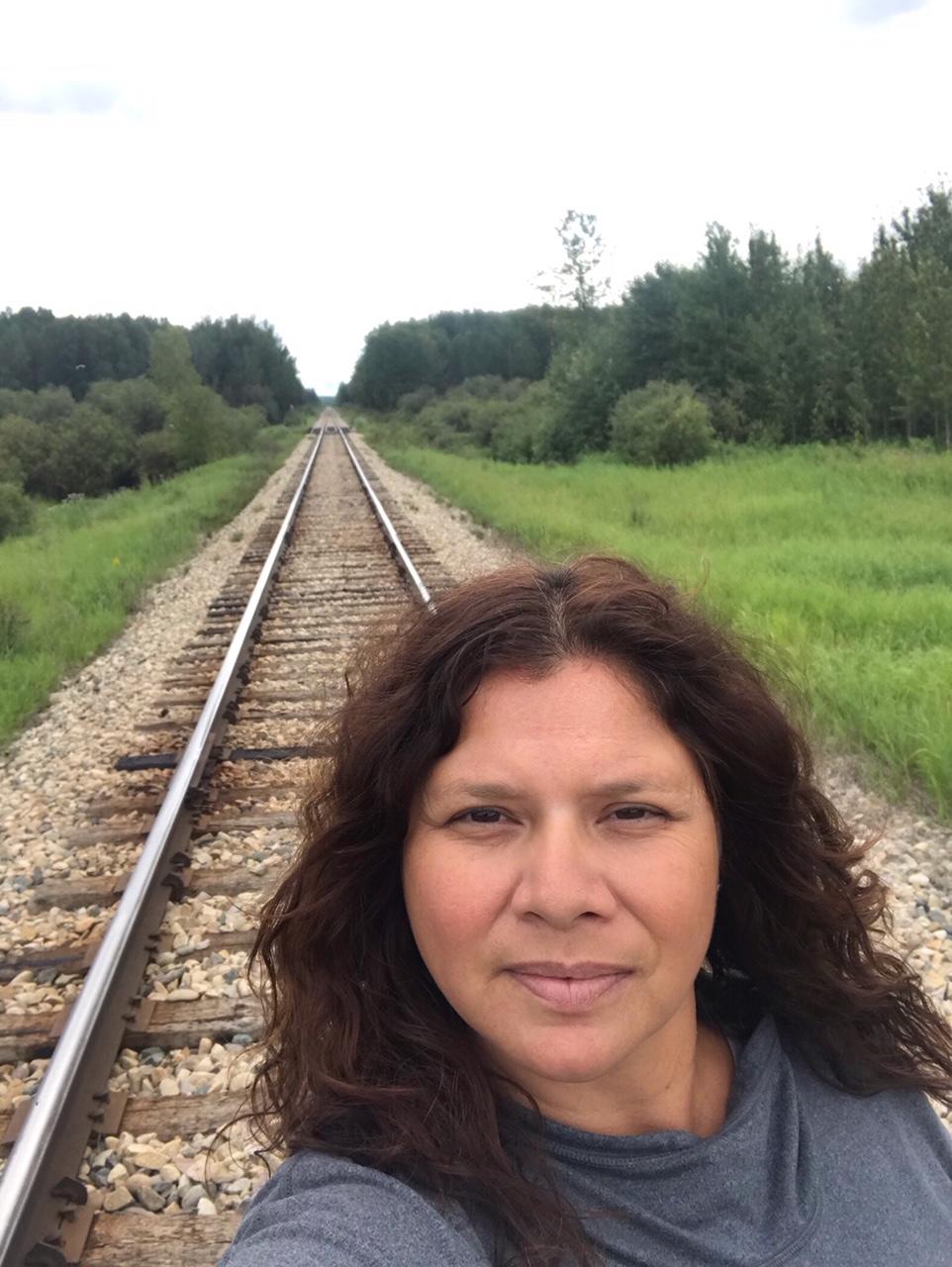May 3, 2021
Undergrads conduct reconciliatory research with Indigenous communities

As the winter semester draws to a close, Dr. Adam Murry, PhD, an assistant professor in Indigenous psychology, is excited about the ways his students’ research will inform recommendations and actions for their community partner, the Portland Committee on Community-Engaged Policing (PCCEP). Based in Portland, Ore., the PCCEP’s aim is to achieve equitable policing in their local communities through an informed, community-engaged approach, including evidence-based research.
Investigating the discourse on Indigenous experiences with police
Looking at news articles, scholarly publications and tweets, undergraduate students in Murry’s research stream in the new Research on Global Challenges course conducted a content analysis on the ways Indigenous experiences with police are depicted. With expert guidance on the extensive process based on systematic review methodology from librarians, Dr. Alix Hayden, PhD, and Dr. Zahra Premji, PhD, students sampled ways that people talk about Indigenous interactions with the police in academic and popular media.
Theodore Latta, the project director for the PCCEP, recognizes the students’ crucial contributions. “Adam and I thought it would be interesting to look more in-depth about an underrepresented population that is overrepresented in police interactions,” says Latta.
“It’s important and significant that there is a research stream of undergraduate students dedicated to researching Indigenous interactions with police.” The results from this study will help inform community assessments at the local level, meant to improve relations between the police and Portland’s marginalized sub-populations.
Murry’s student-partnered research is one of four research streams in the pilot course, Research on Global Challenges led by Dr. Kyla Flanagan, PhD, at the College of Discovery, Creativity and Innovation (CDCI). As students participated in this experiential learning opportunity, Flanagan and Murry saw them developing research skills, including honing their discourse and quantitative content analysis skills as they dived into the research process.
Students’ research data will inform the second iteration of Research on Global Challenges in fall 2021. Using the data, Murry hopes to develop assessment tools like a topical map, focus groups and survey items. “Most students wanted to do something substantial,” says Murry. “They enjoyed taking responsibility over the research and approaching their research with authenticity and sincerity.”
A collaborative approach to student-led research with Indigenous communities

Valerie Fox, fourth-year International Indigenous Studies student and member of the Métis nation.
Meanwhile, Dr. Adela Kincaid’s INDG 502.4 Applied Indigenous Projects course delivers on another CDCI initiative: Course-based Undergraduate Research Experiences (CURE). Kincaid, PhD, an instructor in the Department of Political Sciences, facilitates students to select projects that align with both their personal and Indigenous communities’ interests.
“Students have articulated that they feel they’re contributing to reconciliation. I think this work is really important in moving relationships forward by being involved at the community level,” says Kincaid.
Students in Kincaid’s CURE have also expressed the value of the research activity and its significance on their academic identity. “This specific course has been everything that I had hoped my university degree would give me,” says Valerie Fox, a fourth-year International Indigenous Studies student and member of the Métis nation.
Working as part of the research team led by Dr. Jennifer Leason, PhD, an associate professor in the Department of Anthropology and Archaeology, and informed by Elder Evelyn Goodstriker, Fox investigated how rematriation, the act of acknowledging and restoring the matrilineal culture of Indigenous communities, can challenge colonization by contributing to improving Indigenous women’s maternal health and well-being.
A visual representation of rematriation, Fox’s painting below depicts the vibrant paths created by Indigenous women as they reclaim and restore their health and wellness through the colourful feather lines. Beneath the feather, seeds of life are planted to support the continual growth of Indigenous peoples and nations.

Artist credit: Valerie Fox (2021)
As an Indigenous student, Fox adds that opportunities such as the CURE in INDG 502.4 are crucial to laying the foundation for Indigenous students to become Indigenous researchers, “When you have undergraduate Indigenous students taking a course like this, conducting research, and doing that over years and years, that provides a foundation for future generations. I think that’s why it’s really important to continue offering courses like this.”
At the heart of the course-based student research experiences Murry and Kincaid provide is the intention to put students’ investigations into the service of community partners, and more important, in ways that integrate and value Indigenous perspectives. In turn, these opportunities fulfill the university’s aim to increase experiential learning opportunities for undergraduate students. The CDCI’s initiatives develop students’ research and professional skills while increasing engagement with the course content and forging deeper community connections.
The Research on Global Challenges and CURE pilot projects are the College of Discovery, Creativity and Innovation’s initiatives intended to expand undergraduate research opportunities and incorporate research into curricula. To learn more about these initiatives and how faculty members and students can participate, please visit the College of Discovery, Creativity and Innovation’s Undergraduate Research Initiative.
ii’ taa’poh’to’p, the University of Calgary’s Indigenous Strategy, is a commitment to deep evolutionary transformation by reimagining ways of knowing, doing, connecting and being. Walking parallel paths together, “in a good way,” UCalgary is moving toward genuine reconciliation and Indigenization.


